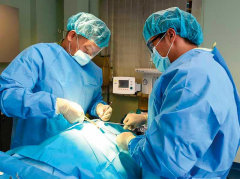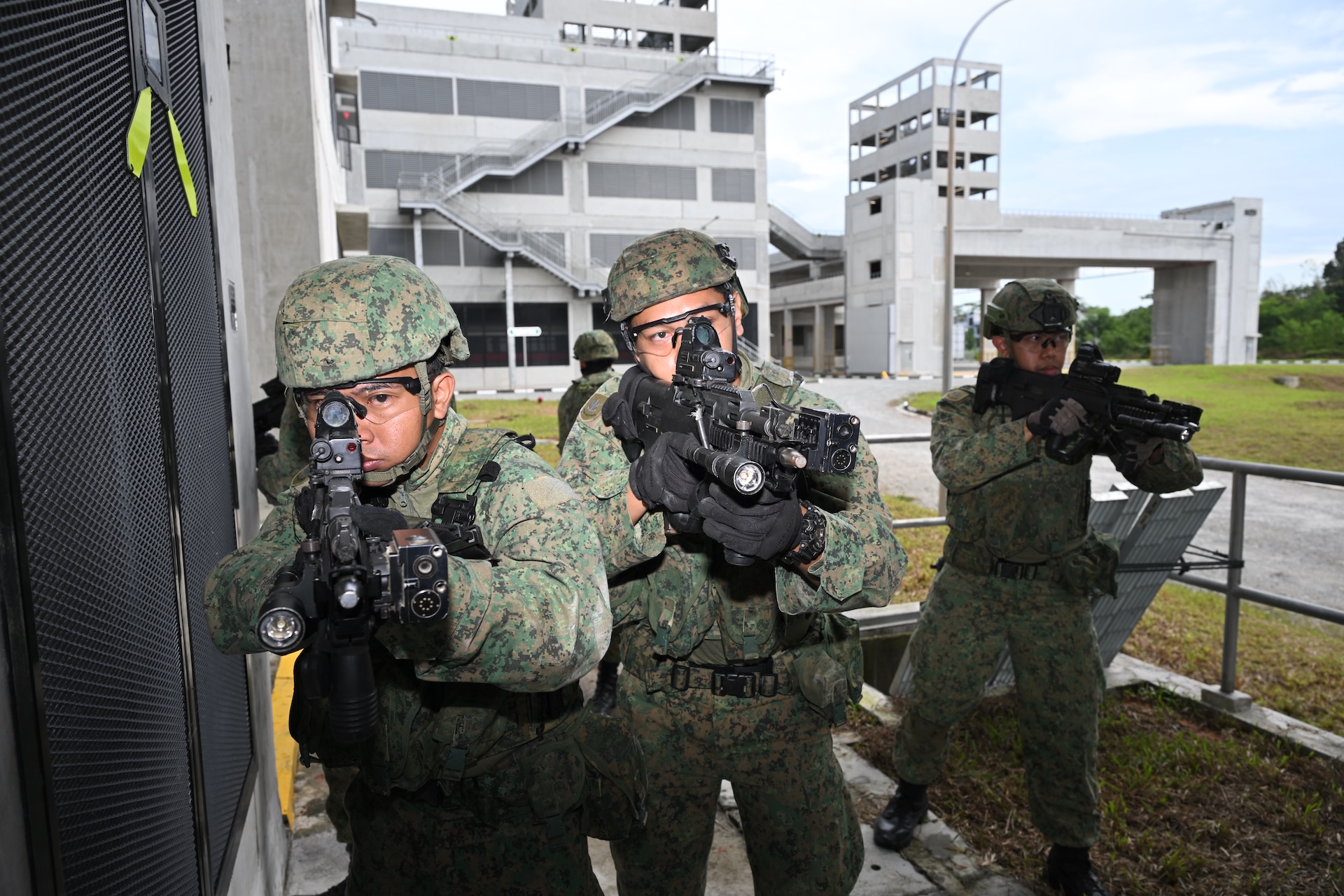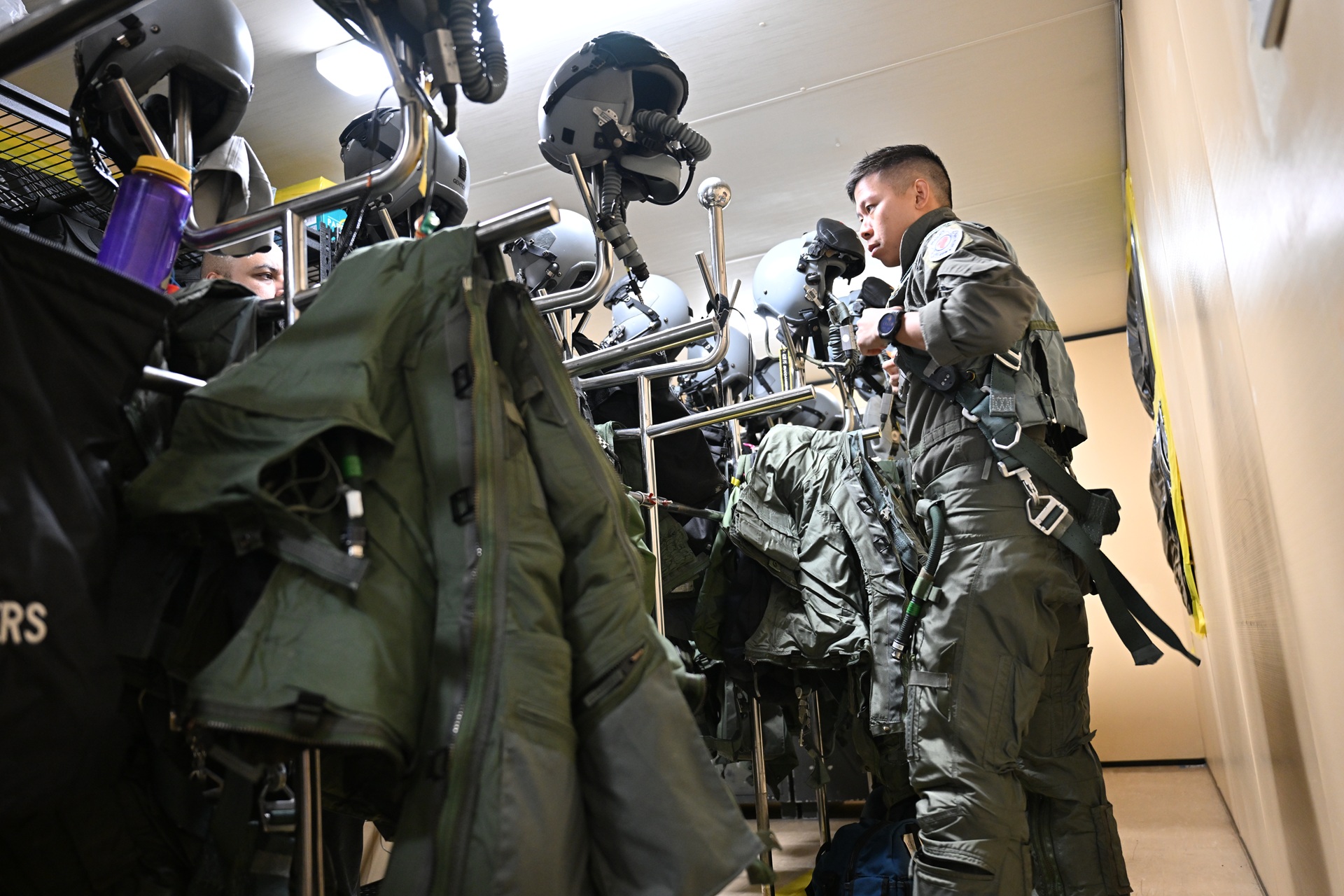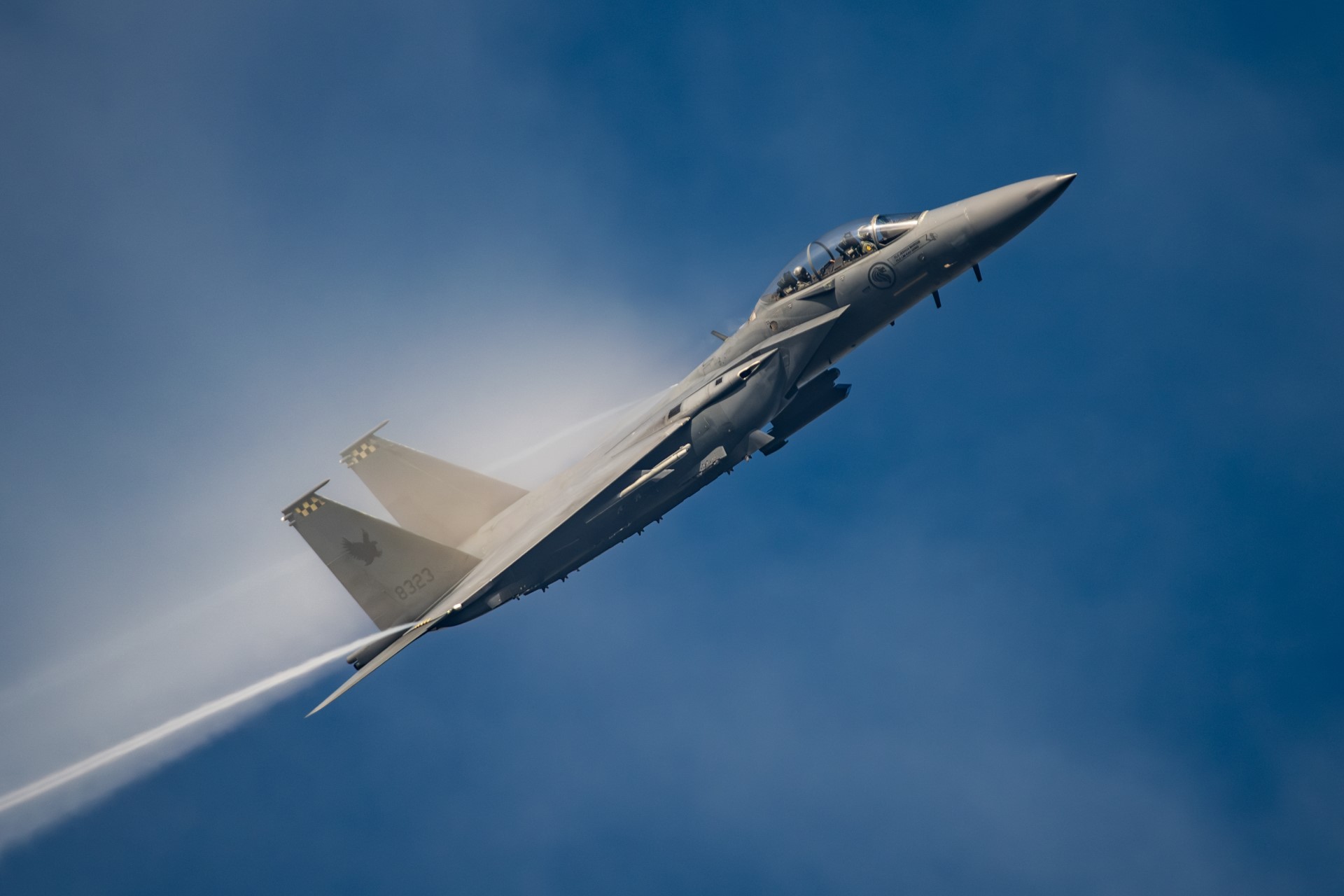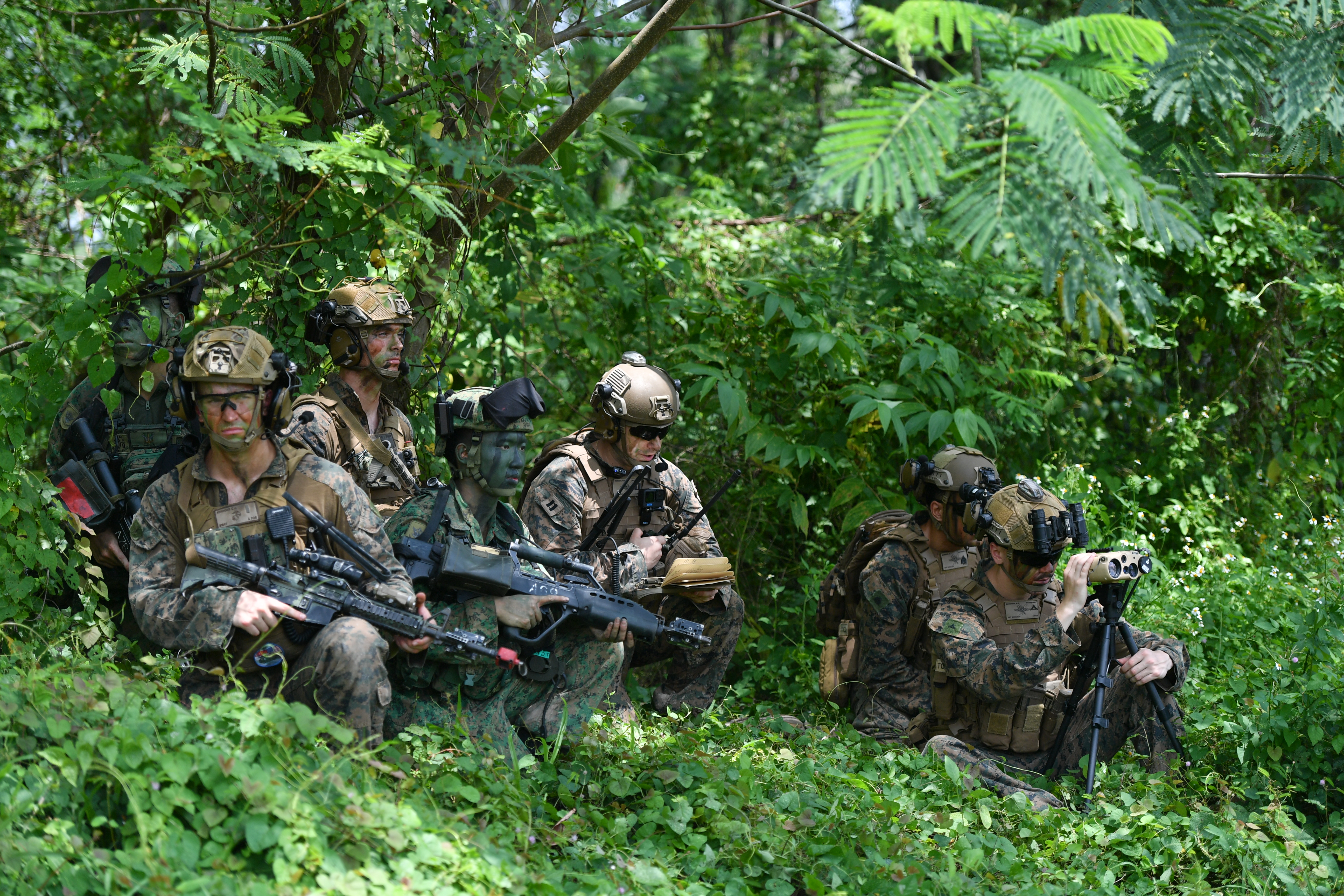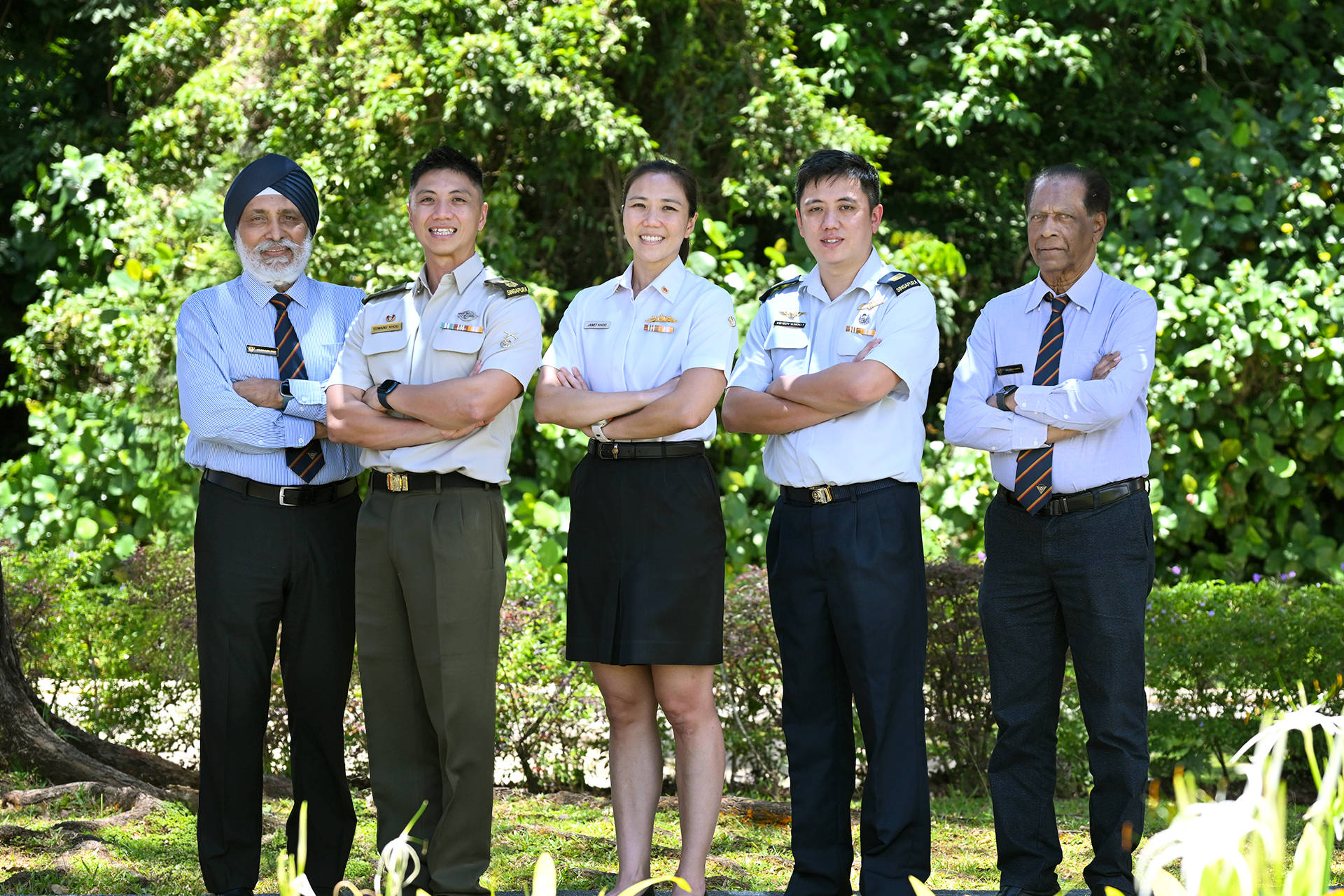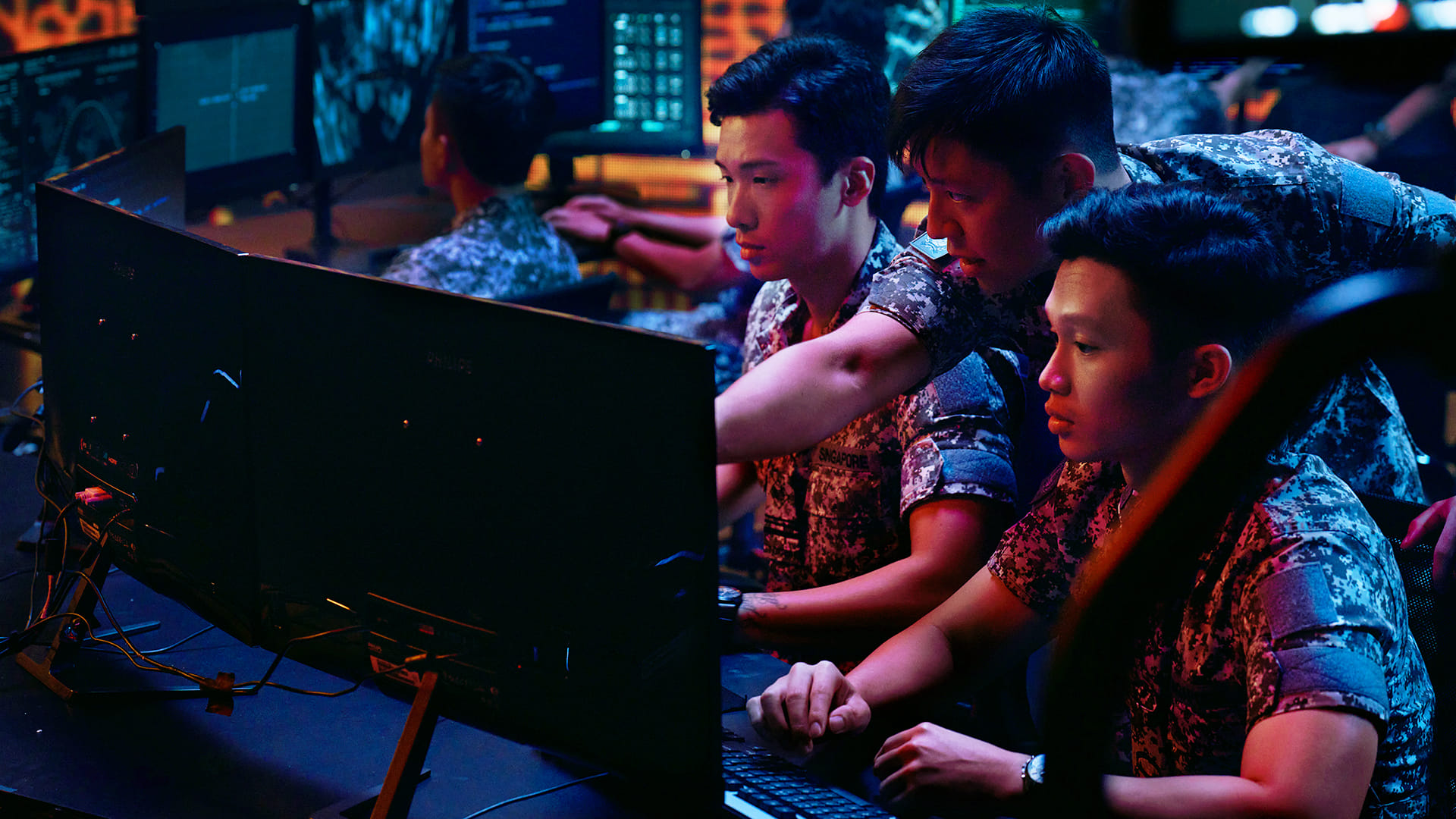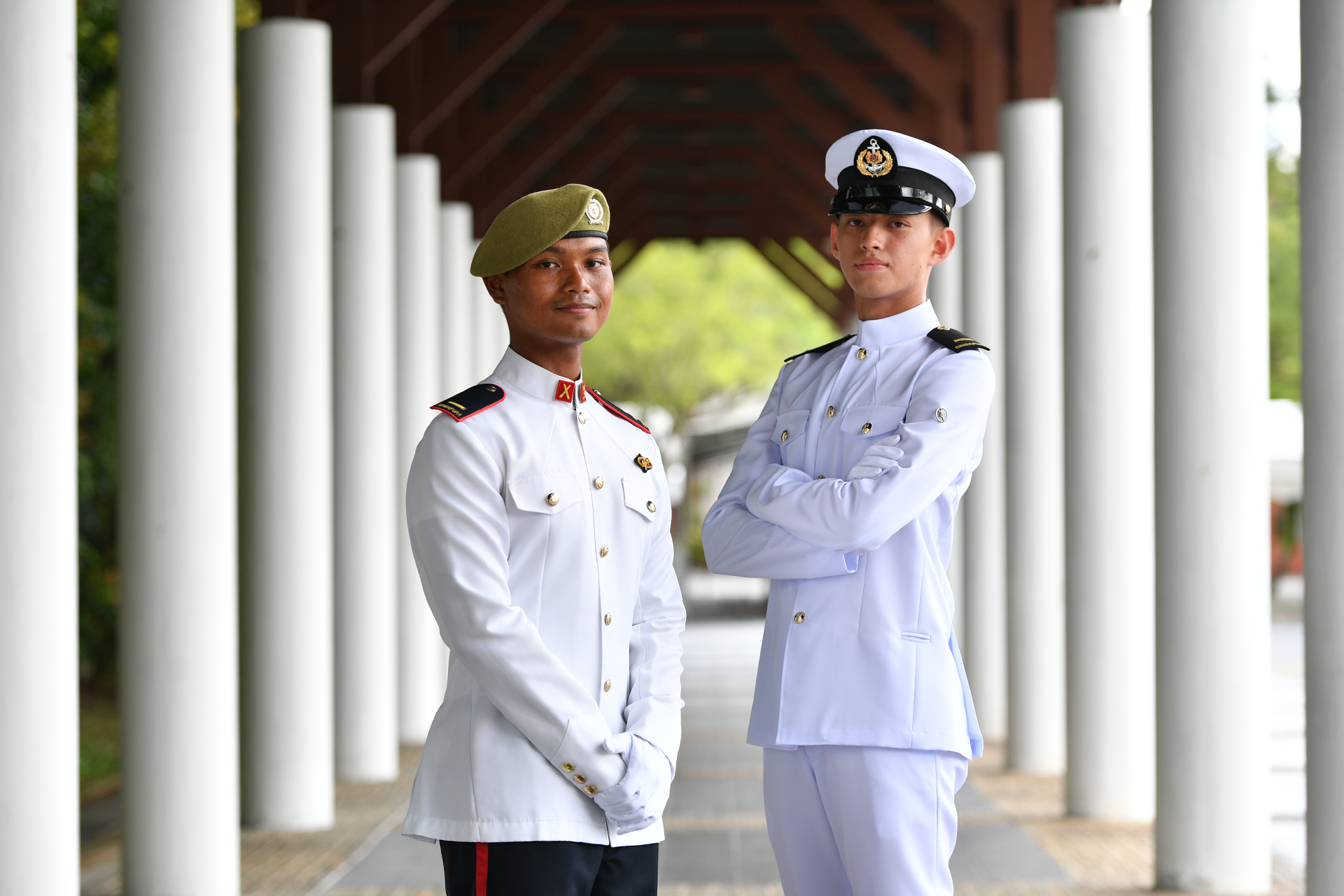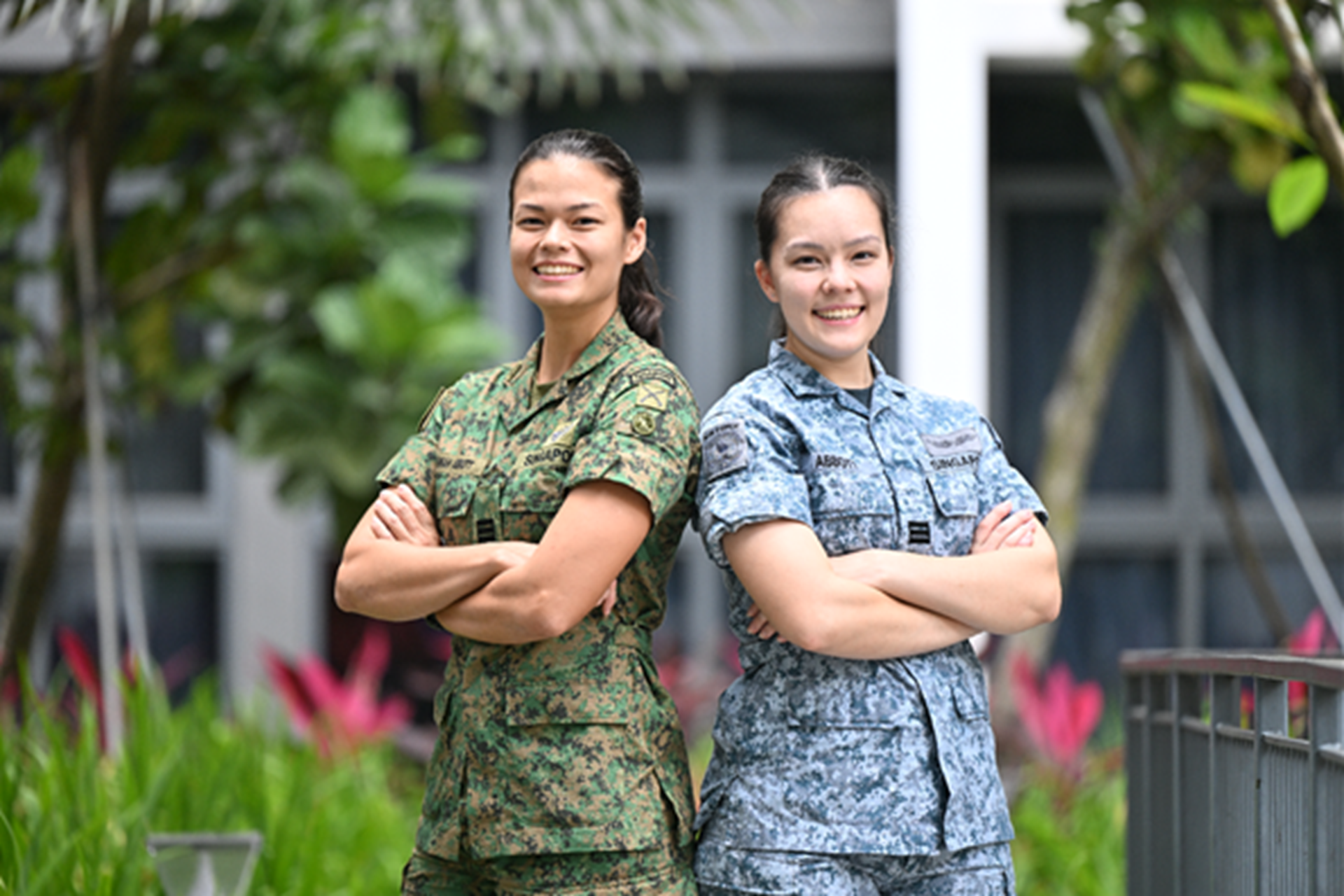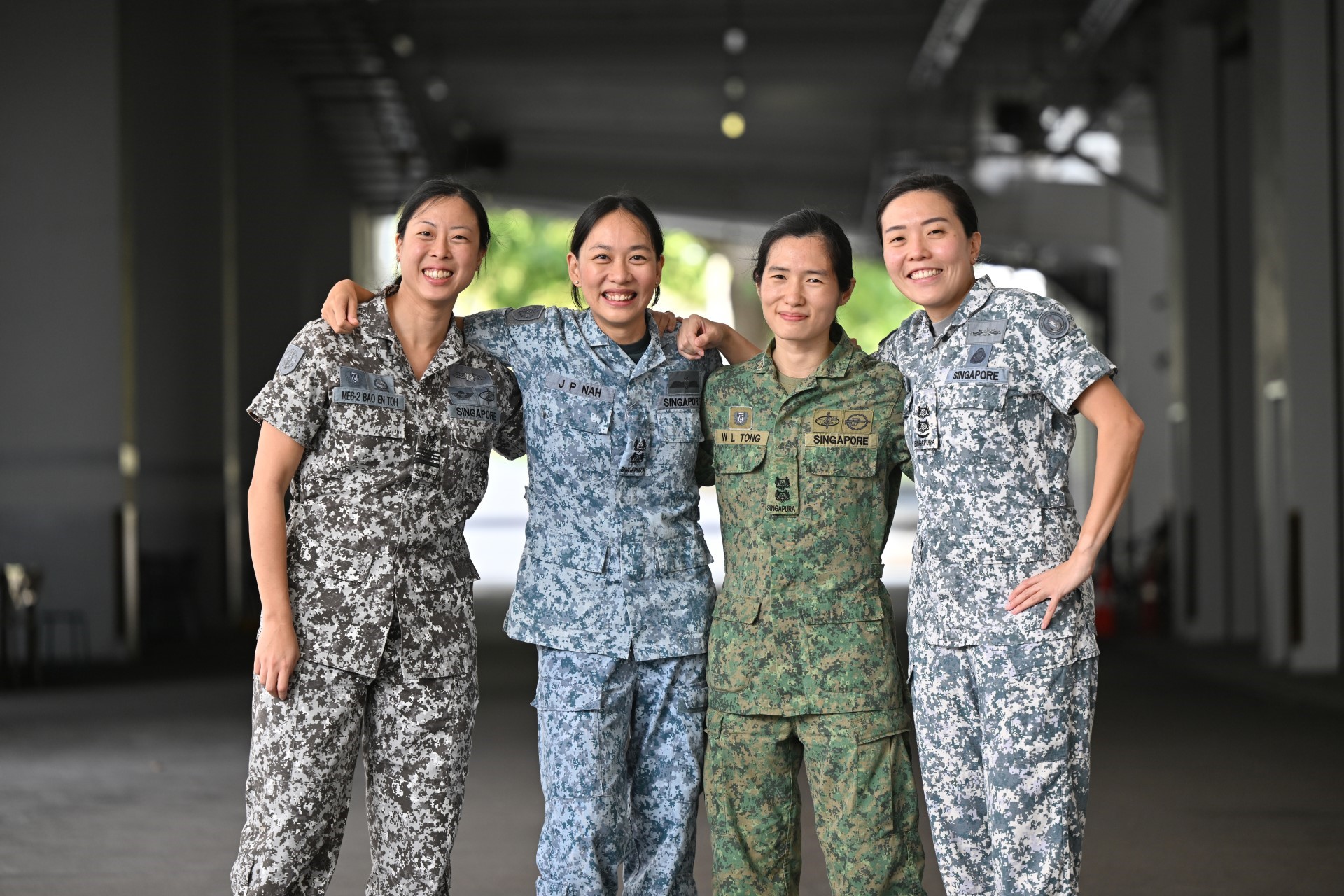DENTISTS IN COMBAT
PHOTO // Kenneth Lin & Chua Soon Lye
It's not just about taking care of soldiers' teeth. Singapore Armed Forces (SAF) dentists also save lives in the battlefield.
A soldier shot in the jaw is struggling to breathe. Blood spurting from his throat wound is choking his airway. A medic checks on him. "To the dental team!" he screams.
An oral and maxillofacial surgeon - a dentist who specialises in treating injuries in the neck, face, jaw and mouth - swings into action, removing the bullet and stopping the bleeding to keep the wounded soldier alive.
This is a field hospital training drill, which shows a little-known role of the SAF dentists: saving lives in a combat zone.
Combat injuries in the neck, face, jaw and mouth are usually treated by oral and maxillofacial surgeons, instead of general surgeons.
Major arteries are present in the head and neck region, and it takes a surgeon withintimate knowledge of these body parts to perform the delicate operations necessary.
"One of the first things we do is to stop the bleeding and protect the airway. Within the first hour - what we call the golden hour - if you don't save the soldier from bleeding and maintain his airway, he will be gone," said Major (MAJ) (Dr) (NS) Bertrand Chew, a consultant oral and maxillofacial surgeon.
MAJ (Dr) (NS) Chew performing an emergency procedure on a patient with simulated oral and facial trauma injuries.
Bigger role
The role of these surgeons is set to become bigger as studies have shown that soldiers increasingly suffer more injuries in the face and jaws in the modern battlefield.
According to the United States Army's Joint Theatre Trauma Registry, 30 percent of combat injuries in Afghanistan and Iraq were sustained in the face. Because of advancements in body armour, the most common areas of injury were the head, neck and limbs. New threats from Improvised Explosive Devices also inflicted blast injuries to parts of the body with less protection.
Currently, the SAF dental teams operate in the Combat Surgical Hospital, a field hospital that is deployed away from the front-line. They are also present on Navy Surgical Hospital ships.
Earlier this year, the SAF Dental Service started experimenting with having its dental teams in Mobile Surgical Teams. These are small surgical units that are attached to front-line troops.
Said MAJ (Dr) Gabriel Chong, Deputy Head of the SAF Dental Service: "They can perform damage control surgery to stabilise the patient before evacuating him for more definitive treatment."
Reducing downtime
In the field, SAF dental teams provide treatment for conditions ranging from lacerated lips to broken teeth or even a simple toothache. Troops can then return to their operational duties with minimal disruption.
Combat dentistry actually begins during pre-enlistment medical screening, said MAJ (Dr) Chong.
At that point, and in subsequent pre-deployment screenings, servicemen are placed into one of four dental classifications. Only those in the first three classifications are eligible for combat deployment. Service personnel who are dentally unfit will undergo subsequent treatment. This helps to maintain operational readiness and reduce lost duty time caused by dental diseases.
Forensic dentistry
Another little-known role of dentists: identifying fallen soldiers whose bodies cannot be identified by visual means. Forensic dentists identify bodies by conducting post-mortem examination of their teeth and comparing against their ante-mortem dental records.
What they do is seldom talked about as death is a taboo topic. But they play an important role in helping to provide closure to the deceased's family, said MAJ (Dr) Chong, who is also a consultant in forensic dentistry.
During peacetime, SAF forensic dentists assist in forensic work for the Health Sciences Authority. They have also been called upon to help in international disaster victim identification missions such as for the ill-fated AirAsia flight QZ8501 that crashed into the Java Sea in December 2014.
Recalling his experience, MAJ (Dr) Chong said: "The bodies were all badly decomposed. There were pieces of skeletons and flesh that looked as if they had been bleached.
"You cannot unwind what had happened, but as a forensic dentist, I can speak for the dead, and in doing so, help the living," he said.
"You cannot unwind what had happened, but as a forensic dentist, I can speak for the dead."
- MAJ (Dr) Chong on the role of a forensic dentist
Field dentistry
In a field hospital, dental officers and dental assistants face challenges like risk of contamination, and shortage of medical equipment, electricity and clean water. "In a real war, we may not have air-con, electricity and water supplies. How do we create a training environment that is volatile and ambiguous? We have to go somewhere that is not controlled," said MAJ (Dr) (NS) Chew, the former Head of the SAF Dental Service.
To practise operating in the field, SAF dental teams conduct socio-civic missions overseas for up to seven times a year, where they provide much-needed dental treatment to local villagers and the less fortunate. They usually operate in a tent or buildings where electricity and running water may not be readily available.
